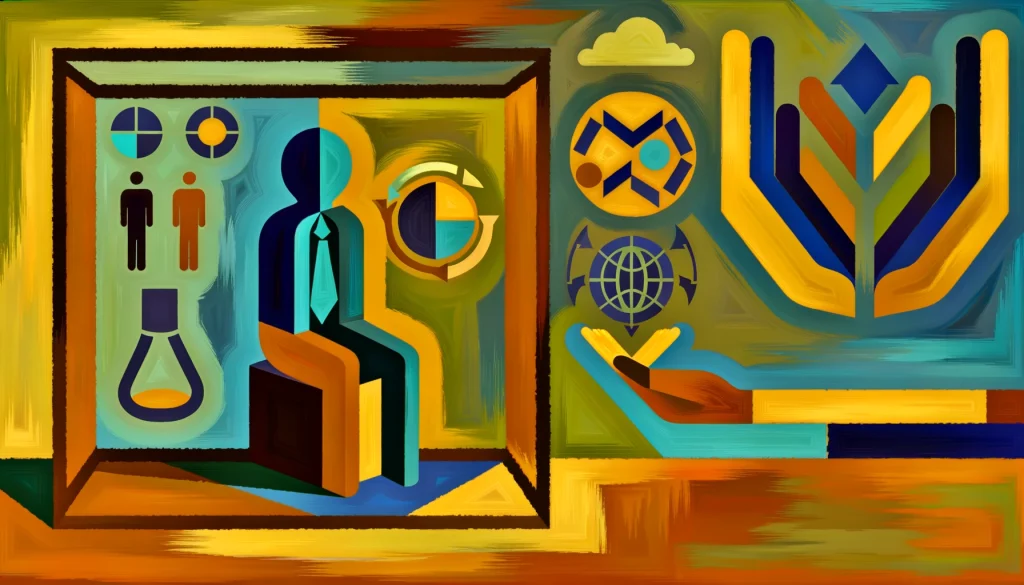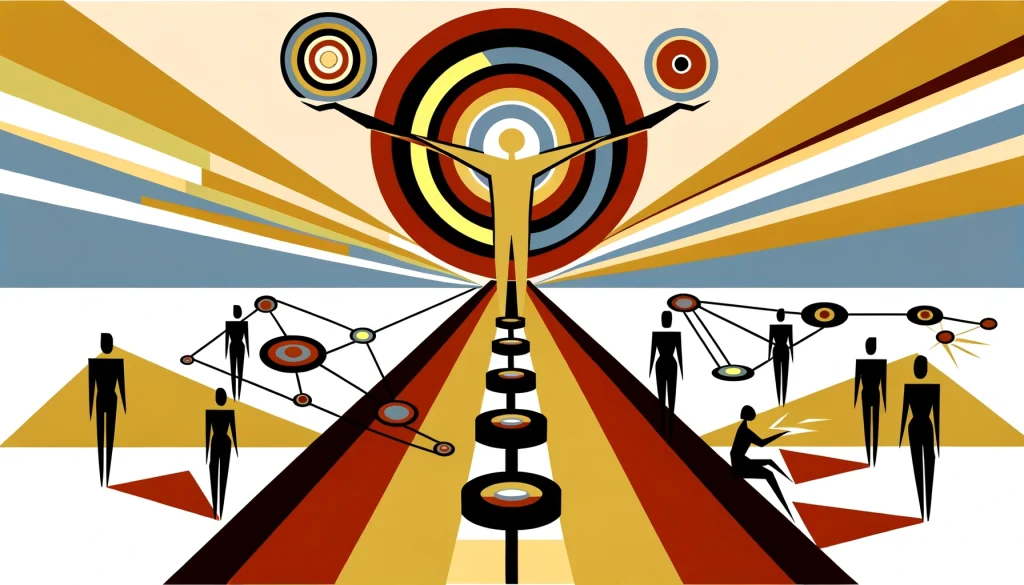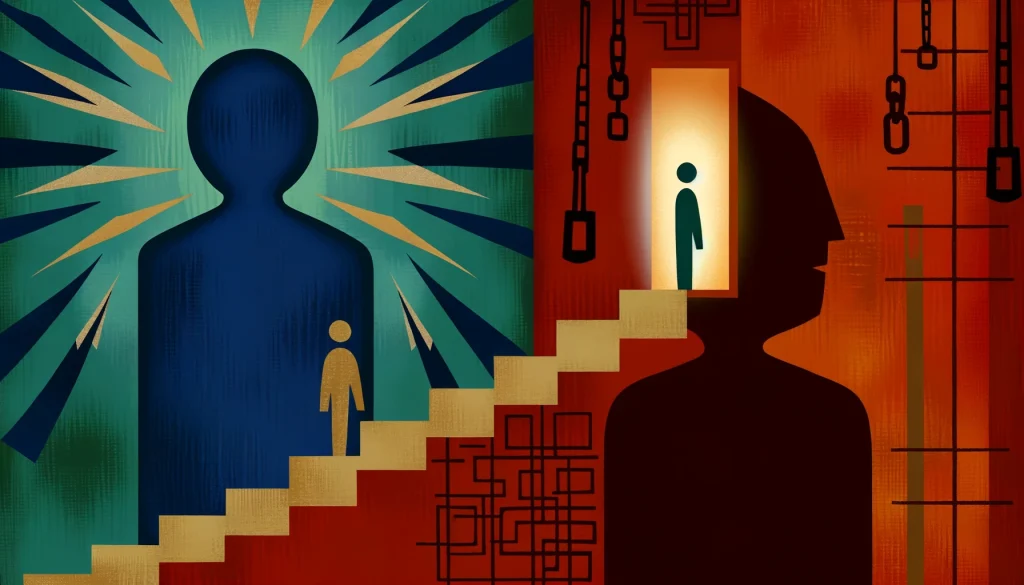Have you ever had that gut feeling something wasn’t quite right in your relationship? I’ve been there too! Recognizing red flags in relationships isn’t about being overly suspicious – it’s about protecting your emotional wellbeing. According to a recent study by the Journal of Interpersonal Violence, people who identify relationship red flags early are 70% less likely to end up in toxic partnerships. Whether you’re just starting to date someone new or reflecting on your current relationship, understanding these warning signs can save you from heartache and help you build healthier connections. Let’s explore the critical signs that might indicate it’s time to reassess your relationship!
What Are Relationship Red Flags and Why They Matter
When we talk about relationship red flags, we're referring to those warning signs that something isn't quite right—behaviors or patterns that signal potential trouble ahead. These aren't just little quirks or annoying habits; they're serious indicators that could predict unhealthy or even harmful relationship dynamics.
"I spent three years making excuses for my ex's 'bad days,'" shares Maya, 32. "Looking back, those weren't just bad days—they were previews of the controlling behavior that eventually took over our relationship."
Red flags differ significantly from normal relationship challenges. Every couple faces difficulties—miscommunications, disagreements about finances, or adjusting to each other's habits. But red flags are more fundamental problems that typically don't improve with time or communication alone.
Research paints a sobering picture: according to a study published in the Journal of Family Psychology, couples who identified but ignored significant red flags in the first year of dating reported 45% lower relationship satisfaction after three years compared to those who addressed these issues early.
- Nearly 70% of people in unhealthy relationships admit they noticed warning signs within the first three months of dating
- Individuals who address red flags early report 62% higher relationship satisfaction long-term
- The most frequently overlooked red flags involve communication patterns and respect issues
- People with lower self-esteem are 3x more likely to dismiss significant relationship warning signs
So why do we often turn a blind eye to these warning signals? Psychologists point to several factors. Sometimes it's the "sunk cost fallacy"—we've invested so much time and emotion that we're reluctant to admit there's a problem. Other times, it's the intoxicating effect of new love, what therapists call the "love hormone haze" that can literally affect our judgment.
Communication Red Flags That Signal Trouble Ahead
Communication forms the backbone of any healthy relationship, which is why problematic patterns here deserve particular attention.
"I noticed my partner would shut down completely whenever I brought up something that bothered me," explains Carlos, 28. "At first, I thought he just needed time to process, but eventually, I realized he was using silence as a weapon to avoid addressing issues altogether."
Stonewalling—where one partner completely withdraws, shuts down, or refuses to engage—isn't just frustrating; it's considered one of the four major predictors of divorce according to relationship researcher John Gottman. Similarly, the silent treatment isn't just childish; it's a form of emotional manipulation that can leave lasting damage.
Particularly concerning is gaslighting, where someone makes you question your own reality, memories, or perceptions. Comments like "that never happened" or "you're too sensitive" might seem minor in isolation but form a pattern that can erode your sense of self over time.
- Watch for consistent defensiveness where your partner can never admit wrongdoing
- Be concerned if disagreements frequently escalate to name-calling or character attacks
- Notice if your partner dismisses your feelings with phrases like "you're overreacting" or "you always make a big deal out of nothing"
- Pay attention if conversations are constantly redirected to make you feel guilty for raising issues
Healthy relationships can handle disagreements—in fact, constructive arguments can strengthen bonds. The difference lies in how conflicts unfold. If disagreements consistently involve contempt, criticism of your character (rather than specific behaviors), or leave you feeling diminished, these aren't normal challenges but serious red flags.
Trust and Honesty Issues That Shouldn't Be Overlooked
Trust forms the foundation of any meaningful relationship, which is why breaches—both large and small—warrant careful attention.
"I caught him in small lies constantly," recalls Priya, 34. "Nothing major—just little things about where he'd been or who he'd talked to. I told myself it didn't matter because they weren't about anything important, but those small lies were actually revealing something significant about his character."
When examining trust issues, it's important to distinguish between privacy and secrecy. Everyone deserves privacy—checking messages while your partner is in the shower isn't healthy behavior. But secrecy is different—it involves intentionally hiding information that would be relevant to your partner.
- Be wary of unexplained gaps in stories or details that frequently change
- Notice if your partner seems overly protective of their phone or digital accounts
- Pay attention if your intuition consistently tells you something doesn't add up
- Watch for deflection when you ask straightforward questions
- Consider it concerning if your partner makes you feel unreasonable for wanting transparency about important matters
It's also crucial to examine your own perspective. If you've experienced betrayal in past relationships, you might be projecting those fears onto your current partner. The key difference: legitimate red flags typically form patterns that your partner either denies or refuses to address when confronted.
"After being cheated on in my previous relationship, I was suspicious of everyone," admits Jordan, 29. "Therapy helped me distinguish between my trust baggage and actual concerning behaviors. Real red flags aren't just triggered by my past—they're consistent patterns that exist regardless of my history."
Control and Possessiveness: Dangerous Relationship Red Flags
Perhaps some of the most dangerous red flags revolve around controlling behaviors, which often start subtly but can escalate over time.
"He presented it as concern at first," shares Amber, 36. "He'd text constantly when I was out with friends, saying he was worried about my safety. It felt caring until those texts became demands to know exactly who I was with and accusations if I didn't respond immediately."
Early warning signs of controlling behavior often masquerade as intense interest or protection. While it might initially feel flattering to have someone so invested in your whereabouts, healthy relationships don't involve monitoring or management of your activities.
Jealousy deserves particular scrutiny. While feeling occasional jealousy is normal human emotion, there's a clear line between normal feelings and problematic behavior. If your partner's jealousy results in accusations, demands to prove your faithfulness, or restrictions on who you can see, that's crossing into unhealthy territory.
- Be concerned if your partner discourages relationships with friends or family members
- Watch for escalating patterns where small controlling behaviors become more restrictive over time
- Note if your partner tracks your location, monitors your mileage, or checks your receipts
- Be alert to financial control tactics like demanding receipts, criticizing purchases, or limiting your access to shared resources
- Take seriously any monitoring of your digital life—checking your search history, demanding passwords, or reading your messages
Research shows that controlling behaviors rarely exist in isolation and often escalate. A study in the Journal of Interpersonal Violence found that 95% of respondents who experienced physical abuse in relationships reported their partners exhibited controlling behaviors early in the relationship.
Respect Boundaries: When Your Limits Are Consistently Ignored
Boundaries—those invisible lines that define where your physical, emotional, and digital space begins and ends—serve as crucial indicators of relationship health.
"I kept telling him I needed space when I was studying for my exams," explains Talia, 25. "He would agree, then 'surprise' me with visits during my dedicated study time. He made me feel ungrateful for sticking to my boundary, like I was rejecting his love rather than protecting my needs."
Identifying boundary violations requires first recognizing your own boundaries—something many people struggle with. In healthy relationships, partners communicate their limits clearly and respect each other's boundaries even when they don't fully understand them.
Research published in the Journal of Social and Personal Relationships found that couples who reported consistent boundary violations in the first year of dating were 82% more likely to report relationship dissatisfaction and 67% more likely to break up within three years.
- Watch for patterns of your partner "forgetting" boundaries you've clearly communicated
- Notice if saying "no" leads to guilt trips, silent treatment, or accusations of not being loving enough
- Pay attention if physical boundaries are treated as negotiable or if pressure continues after you've expressed discomfort
- Be concerned if your partner shares personal information about you with others against your wishes
- Take note if your partner makes major decisions affecting both of you without consultation
Healthy relationships approach boundaries with respect and consistency. While everyone makes occasional mistakes, persistent boundary violations signal a fundamental lack of respect that rarely improves without significant self-awareness and change efforts from the boundary-crosser.
"The difference became clear when I started dating someone who respected my boundaries," says Marcus, 41. "When I explained I needed a day to myself each week, instead of taking it personally, she simply said, 'That sounds healthy. Everyone needs their own space.' It was such a stark contrast to my previous relationship where setting any boundary was treated like a relationship crisis."
Conclusion
Recognizing red flags in a relationship isn't about finding the perfect, flawless partner – we're all human after all! It's about identifying patterns of behavior that could lead to unhealthy dynamics or even emotional harm. Remember, you deserve a relationship built on mutual respect, trust, and genuine care. If you've spotted several of these warning signs in your relationship, consider speaking with a trusted friend or professional counselor about your concerns. The most important relationship you'll ever have is with yourself, so honor your feelings and set standards that reflect your worth. Have you noticed any of these red flags in past relationships? Taking time to reflect now can help you build healthier connections in the future!






